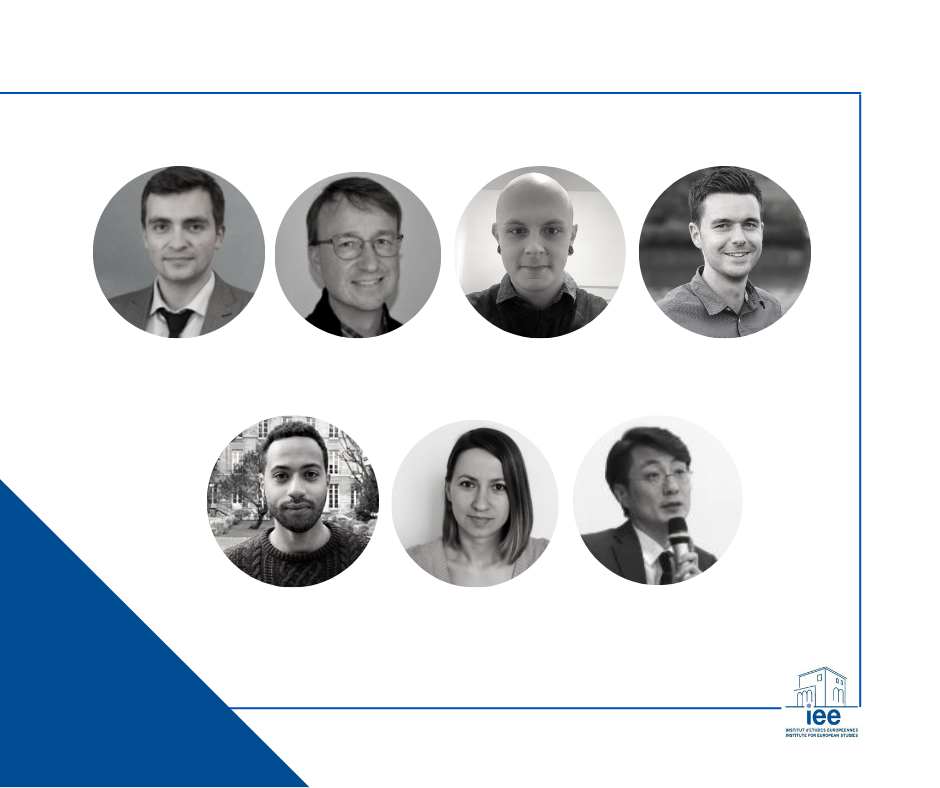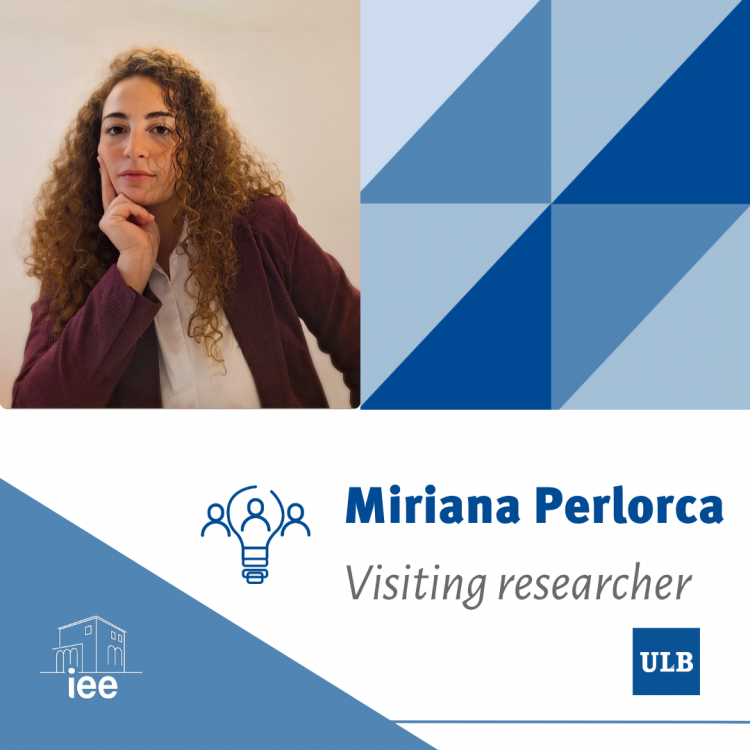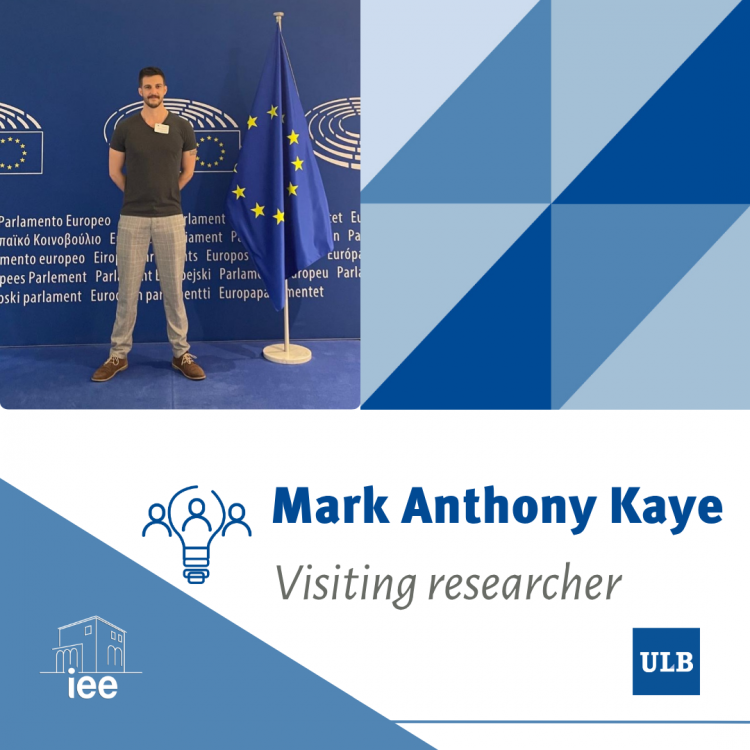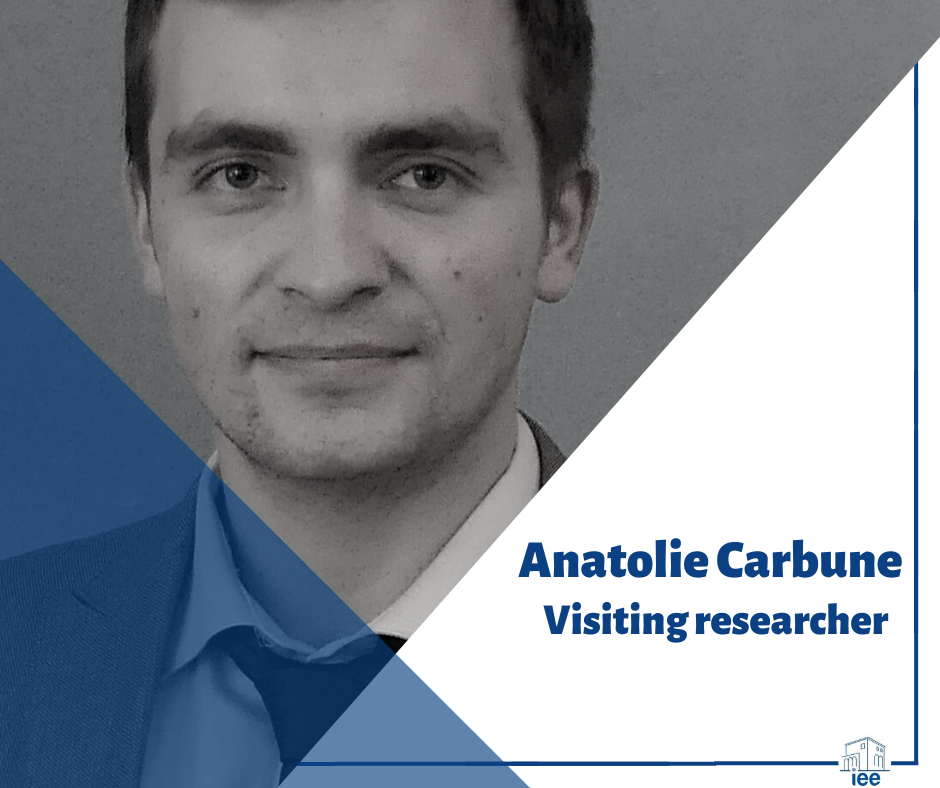 In August 2020, the IEE-ULB welcomed visiting researcher Anatolie Carbune.
In August 2020, the IEE-ULB welcomed visiting researcher Anatolie Carbune.
Anatolie Carbune is a PhD student and research assistant at the Centre for European Studies of the University of Iasi in Romania. He is also a Blue Book Trainee at the European Commission, more specifically in DG DEVCO (International Cooperation and Development). He holds a bachelor’s degree in Marketing from Vasile Alecsandri University in Bacau, Romania, and a Master’s degree in Regional Development Studies from the Alexandru Ioan Cuza University in Iasi, Romania.
The aim of his PhD thesis is to analyse in which way the paradigm shift in the European Union’s foreign policy, which is translated in playing a more salient geopolitical role, transforms the EU as an actor in international relations.
During the months of August and September 2020, Anatolie Carbune conducted research under the supervision of Prof. Ramona Coman on how the pandemic transforms the concept of normative power. In addition to desk research, Anatolie Carbune conducted interviews with EU officials during his time at the IEE.
His research is part of a larger project, entitled ReGrowEU, which advances research in regional growth and development theories through a resilience approach. The project is coordinated by Peter Nijkamp, Emeritus Professor in regional and urban economics, and in economic geography, at the Free University of Amsterdam.
Anatolie Carbune contributed to the IEE blog by writing about his research while at the IEE with an article on how the post-Covid world might be better understood through the lens of the concept of resilience.
To read the article :
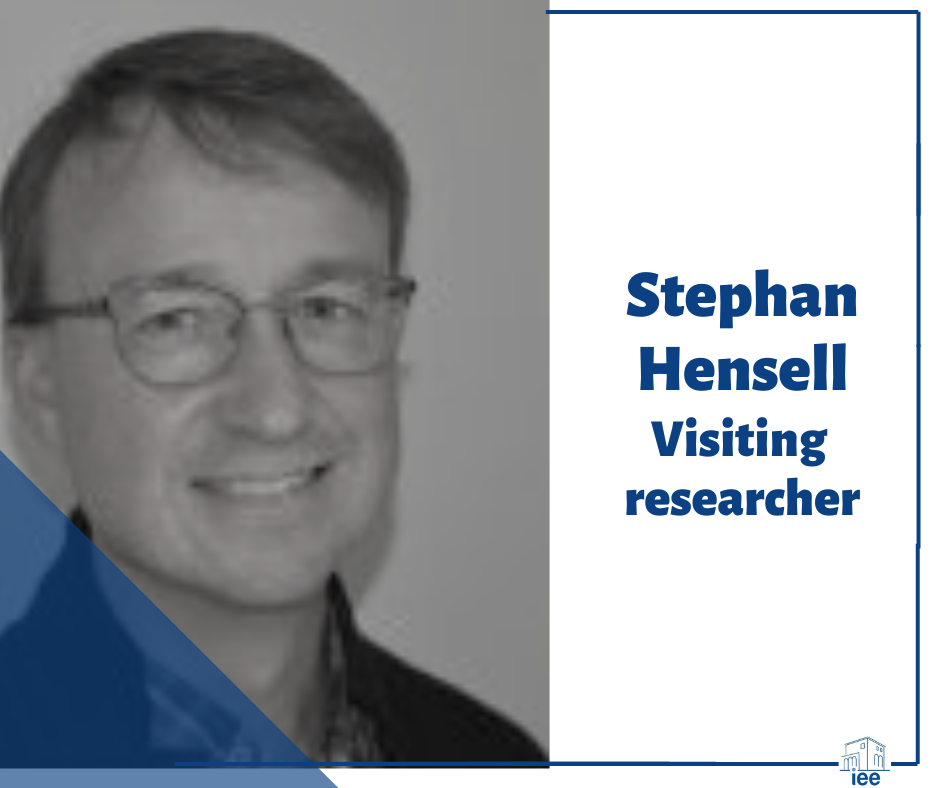
In September 2020, Stephan Hensell‘s status as a visiting researcher was extended.
Stephan Hensell studied Political Science and History at the University of Hamburg. He then obtained a PhD from the University of Hamburg and the Humboldt University of Berlin. Since February 2021, Stephan Hensell’s main affiliation is with the Institut für Interkulturelle und Internationale Studien (InIIS) at the University of Bremen in Germany. Previously, he was a policy officer at the Representation of Hamburg and Schleswig-Holstein to the EU.
From September 2020 to August 2021, Stephan Hensell collaborated with Prof. Olson on a new research project on rebel diplomacy. At the IEE, Stephan Hensell has worked mostly on a research project about legitimation and recognition of non-state violent actors. He has given presentations and worked on several publications which are all under review right now. Furthermore, Stephan Hensell has profited a lot from the exchange with the IEE colleagues (including Prof. Julien Jeandesboz and Prof. Christian Olson) while participating in the public events at the IEE and while giving his own lecture at the IEE.
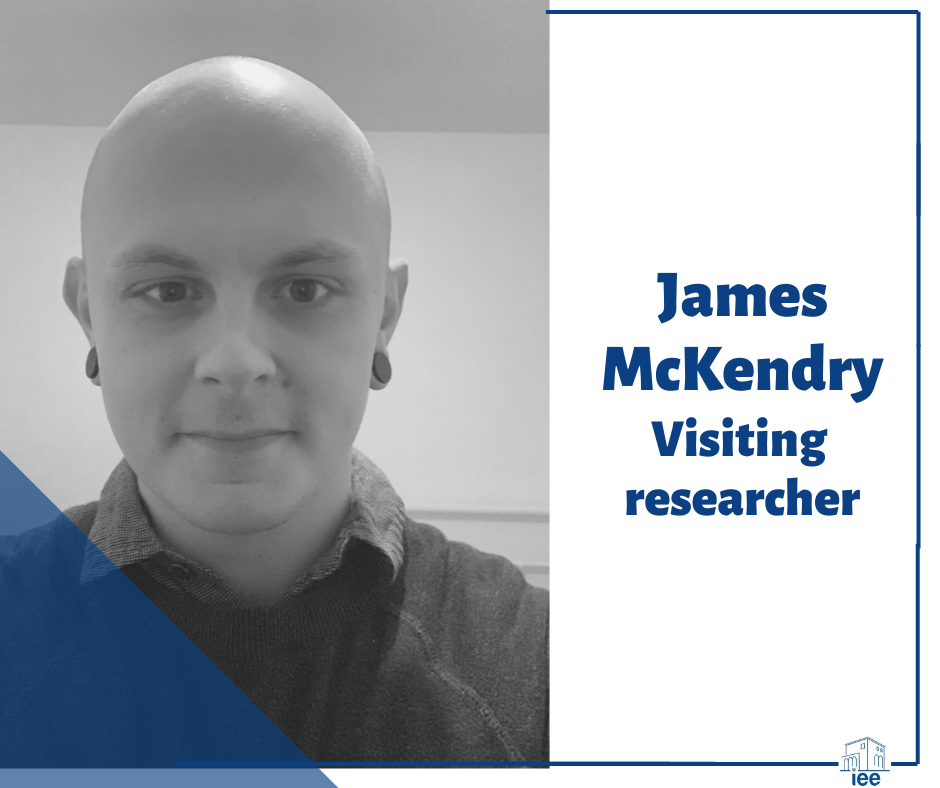 In September 2020, the IEE-ULB welcomed James McKendry.
In September 2020, the IEE-ULB welcomed James McKendry.
James McKendry is a PhD student in Politics at the University of York. He holds a Bachelor’s degree in Politics and a Master’s degree in European Politics from the University of Portsmouth as well as a Master’s degree in Social Research from the University of York.
The aim of James McKendry’s PhD thesis entitled “Disaggregating European (dis)integration: a comparative analysis of the Eurozone and Schengen crises” is to examine the extent to which the European Union is experiencing disintegrative pressures in light of the two crises.
From 7 September to 7 December 2020, James McKendry conducted research under the supervision of Prof. Seda Gurkan on outcome divergence in Europen crisis resolution and the resulting implications for European integration theorising. In addition to desk research, James McKendry conducted interviews with EU policy-makers during his time at the IEE.
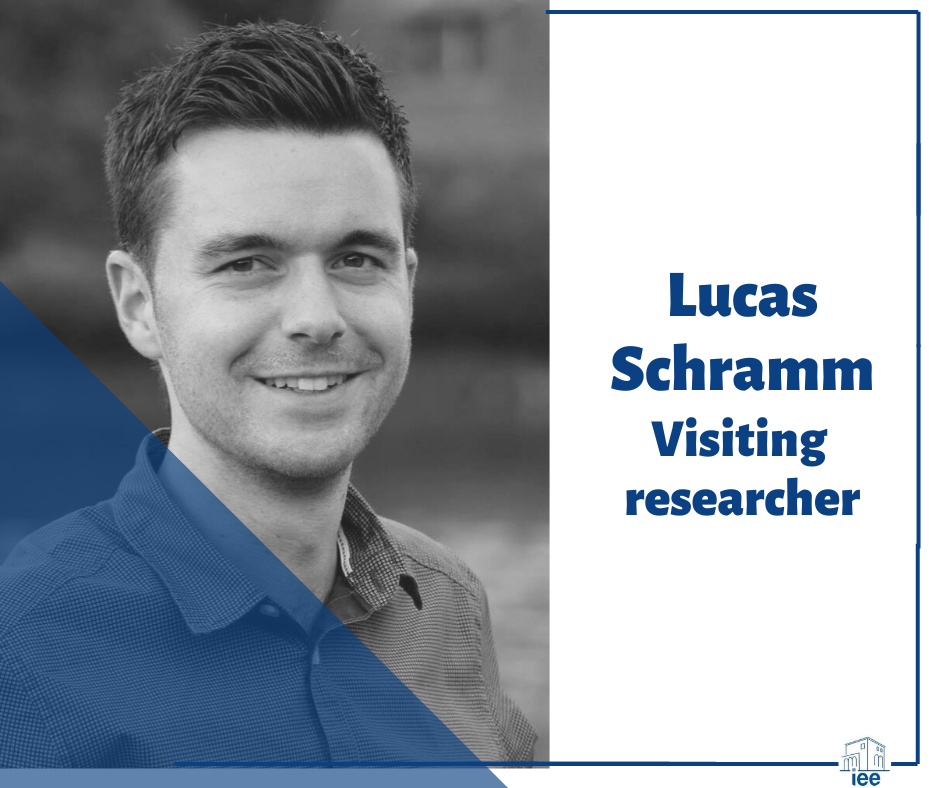
Also in September 2020, Lucas Schramm started his visiting research stay at the IEE-ULB.
Lucas Schramm is a PhD student at the Department of Social and Political Sciences at the European University Institute in Fiesole. He is also a visiting researcher at the European office of the German Institute for International and Security Affairs (SWP).
He holds a Bachelor’s degree in Political Science and German Studies, an Additional Certificate in European Studies, and a Master’s degree in Democratic Politics and Communication from Trier University in Germany. He also obtained a Master’s degree in European Political and Administrative Studies at the College of Europe in Bruges, Belgium.
Lucas Schramm’s doctoral research focuses on political-institutional crises in the history of the European integration process. He seeks to explain the variation in the outcomes and resolutions of crises of European integration by taking a critical look at large parts of the academic literature which suggests that crises open windows of opportunity and have resulted – by and large – in a higher level of integration.
From September 2020 to January 2021, Lucas Schramm conducted research under the supervision of Prof. Amandine Crespy on the EU Council Presdiency as a crisis manager and facilitator for compromises in situations of intergovernmental gridlock. Particular attention was given to the role played by the German government during the Germany Council Presidency (1 July 2020 – 31 December 2020), which will serve as a case study in his dissertation. In addition to desk research, Lucas Schramm conducted interviews with EU decision-makers during his time at the IEE.
Lucas Schramm wrote an article for the IEE blog about his research. In it, Lucas Schramm explains that the current corona crisis might not be that big of a leap in European integration as many expect.
To read the article:
Here is the link to the seminar given by Lucas Schramm this year:
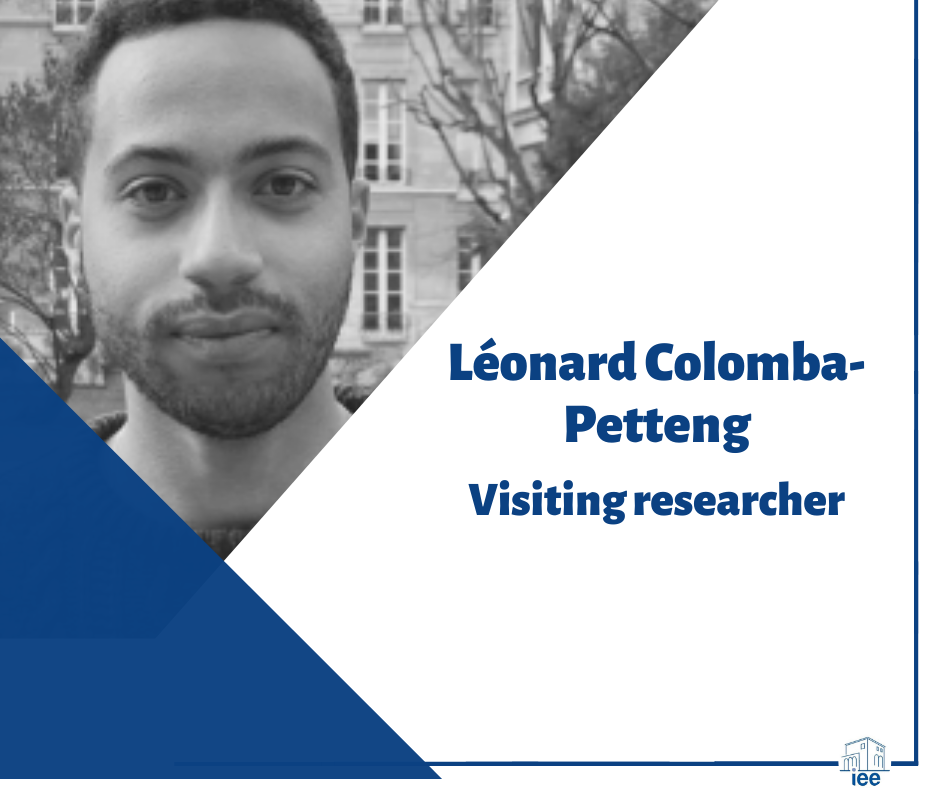 In october 2020, Léonard Colomba-Petteng joined our Institute as a visiting researcher.
In october 2020, Léonard Colomba-Petteng joined our Institute as a visiting researcher.
Léonard Colomba-Petteng is a PhD student at the Center for International Research (Sciences Po – CNRS) associated with the Institute for Strategic Research of the Military School (IRSEM).
He holds a degree (international program, Europe-Africa) from the University College of Sciences Po Paris, and a Master’s degree in Political Sciences (international relations) from Sciences Po Paris.
Léonard Colomba-Petteng’s doctoral research focuses on the civil missions of the European Union in Mali and Niger. He is also an associate researcher in the research program “European Union’s external action with areas of limited statehood and contested orders” (EU-LISTCO) funded by the ERC Research and Innovation Horizon 2020 program, in the framework of which he is responsible for the Mali case study.
From 28 September to 27 November 2020, Léonard Colomba-Petteng conducted a field investigation within the European institutions under the supervision of Prof. Elisa Lopez Lucia. Simultaneously, he worked on the paper entitled “An effective security actor in the Sahel ? Understanding the role of EU security experts on the ground”, which he presented at the EUIA conference in Brussels on 26-28 May 2021.
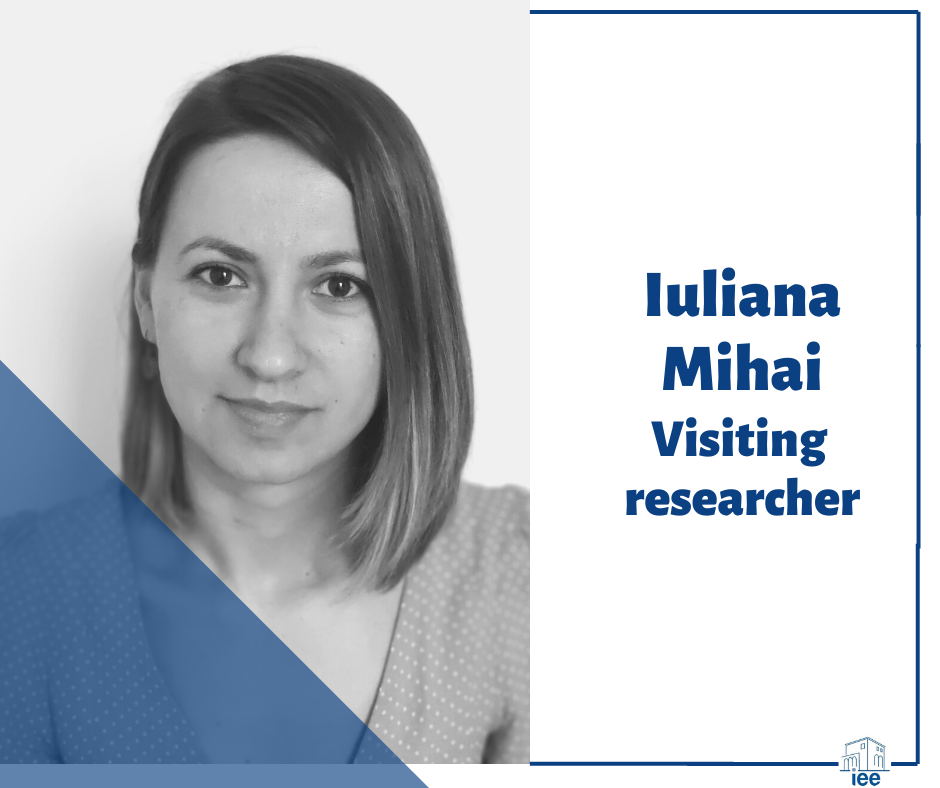 Also in October 2020, the IEE-ULB welcomed visiting researcher Iuliana Mihai.
Also in October 2020, the IEE-ULB welcomed visiting researcher Iuliana Mihai.
Iuliana Miahi is a Ph.D. student and research assistant at the Economics Department of the University of A Coruña in Spain.
She holds a Bachelor’s degree in international Relations and European Studies (2014) and a Master’s degree in International Development Studies (2016) from the Alexandru Ioan Cuza University of Iasi. Additionally, she has been a visiting scholar at University of Turin in Italy (2019) and a Blue Book trainee at the Representation of the European Commission in Bucharest in Romania (2018).
Iuliana Mihai’s research interests include migration and development economics, with a specific emphasis on the interrelationship between migration determinants, culture, inequality and sustainable development. Her research can be framed within the IEE’s research themes ‘Europe as an area of economic and social regulation’ and ‘Europe as a community of norms and values’.
Iuliana Mihai’s doctoral dissertation focuses on the cultural and labour market aspects of European migration.
From 26 October 2020 to 29 January 2021, she was at the IEE-ULB to adopt a gender perspective on high skilled female migration in Brussels, under the supervision of Dr. Federica Infantino. The focus was on conducting retrospective in-depth interviews with a life course approach, where aspects of personal and professional life (especially focused on gender relations, perceived transitions and life events) are evaluated before and after migration to Brussels.
Iuliana Mihai also contributed to the IEE blog and wrote an article about her research. It was entitled “The COVID-19 crisis and gender inequality”.
To read the article:
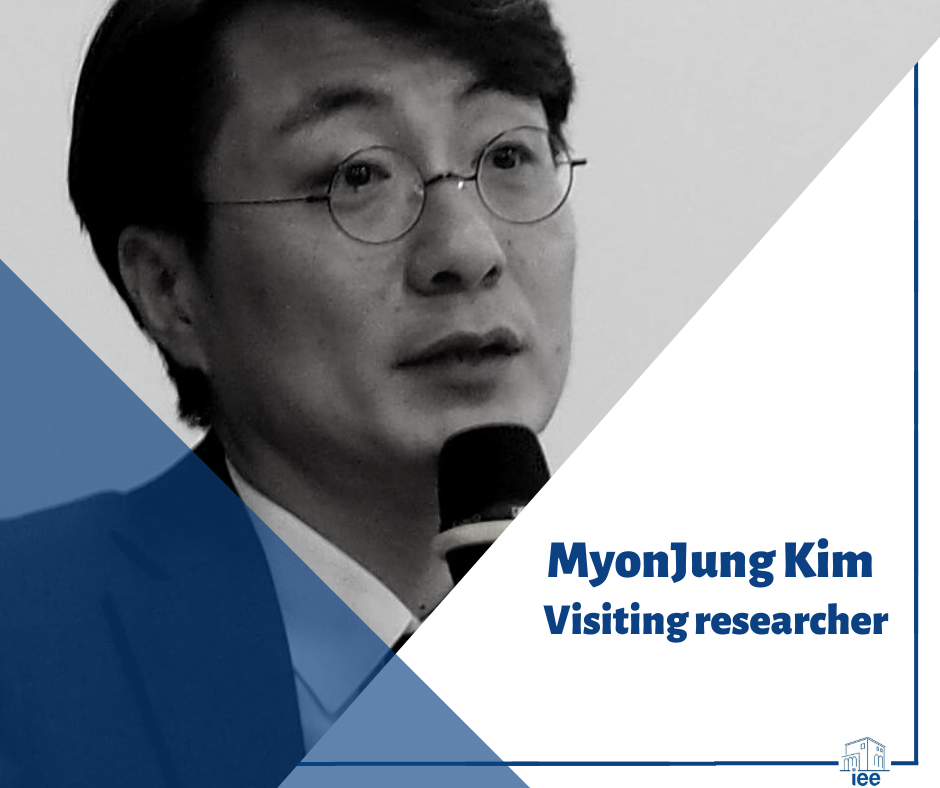 Finally, in March 2021, the IEE-ULB welcomed visiting researcher MyonJung Kim.
Finally, in March 2021, the IEE-ULB welcomed visiting researcher MyonJung Kim.
MyonJung Kim holds a Master in European Studies from Hankuk University of Foreign Studies (HUFS) as well a PhD in Politics with a thesis on Democracy in the EU from Yonsei University, both located in Seoul, Korea.
MyonJung Kim is the Director General of the Korea-EU Research Center (KERC), a roof organization for various Korean institutions in Brussels. He is also a principal researcher at the National Research Foundation (NRF, equivalent of the FNRS), Korean representative at the EU Horizon 2020 National Contact Point, and national coordinator of the ERC ‘Science with and for Society’ programme.
Visiting researcher MyonJung Kim collaborated with the IEE and its affiliates on the research themes ‘Europe as a community of norms and values’ and ‘Europe as an Area of Freedom, Security and Justice’, offered a comparative perspective of Korea and other Asian countries as well as an analysis of Korea-Europe relations. He is particularly interested in the theme ‘Democracy in the EU as a supranational regime and its alternative’.
His one-year research stay under the supervision of Prof. François Foret has also allowed him to explore possible collaborations and promote cooperation at the institutional level (e.g. a collaboration between the IEE and the NRF).
